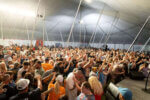In Christ there is atonement for our sins, but are you still tempted to keep a running tally of all you’ve done? Learn to forgive yourself.
First Corinthians 13, the great love chapter of the Bible, is a perfect demonstration of the cause and effect of total forgiveness. The apex of this wonderful passage is the phrase found in verse 5, Love “keeps no record of wrongs” (NIV).
The Greek word that is translated as “no record” is logizomai, which means not to reckon or impute. The word is important to Paul’s doctrine of justification by faith.
For the person who believes, his faith is “credited” to him as righteousness (see Rom. 4:5). This is the same word used in 1 Corinthians 13:5.
Therefore, not to reckon, impute or “count” the wrongs of a loved one is to do for that person what God does for us, namely, choose not to recognize his sin.
In the same way, forgiving oneself means to experience the love that keeps no record of our own wrongs. It is one thing to have this breakthrough regarding others; it is quite another to experience the greater breakthrough—total forgiveness of ourselves.
So many Christians say: “I can forgive others, but how can I ever forget what I have done? I know God forgives me, but I can’t forgive myself.”
We must remember that forgiving ourselves is a lifelong commitment. In precisely the same way that I must forgive others every single day, I must also forgive myself (see Luke 6:37).
The Process of Forgiving
We must renew our commitment to forgive others each and every day for the wrongs done to us. Forgiving ourselves is also a daily process.
We may wake up each day with the awareness of past failures. We may have feelings of guilt—or pseudo-guilt, if our sins have been placed under the blood of Christ.
But forgiving yourself may bring about the breakthrough you have been looking for. It could set you free in ways you have never before experienced.
Sometimes we are afraid to forgive ourselves. We cling to fear as if it were a thing of value. The truth is, the very breath of Satan is behind the fear of forgiving ourselves.
Jesus knows that many of us have this problem. This is a further reason Jesus turned up unexpectedly after His Resurrection in the room where the disciples were assembled both in terror and in guilt.
Jesus wanted them to know they were totally forgiven; He also wanted them to forgive themselves. He spoke to them as if nothing had happened (see John 20:21). This gave them dignity and showed them that nothing had occurred that would change Jesus’ plans and strategy for them.
I remember one Sunday just before I was to preach at the 11 a.m. service. I had an argument with my wife, Louise, and stormed out of the house, slamming the door in her face.
Before I knew it, I was bowing my head on the upper platform at Westminster Chapel before several hundred people. I was thinking: I should not be here. I have no right to be here. Lord, how on Earth could You use me today? I am not fit to be in this pulpit.
There was no way to resolve the situation at that time. I could only ask God for mercy and try my best to forgive myself. Never in my life had I felt so unworthy.
But when I stood up to preach, God simply undergirded me and enabled me to preach as well as I ever had! When we are emptied of all self-righteousness and pride, we enable God to move in and through us.
Why We Can’t Forgive Ourselves
At the end of the day, I believe there are several causes for our inability to forgive ourselves.
Anger. We may be angry with ourselves. Look at the Old Testament story of Joseph. As a type of Christ, Joseph said to his brothers, “‘And now, do not be distressed and do not be angry with yourselves for selling me here, because it was to save lives that God sent me ahead of you'” (Gen. 45:5).
These brothers were beginning to get the message that Joseph had forgiven them; he didn’t want them to be angry with themselves. That is the way God forgives. Jesus does not want us to be angry with ourselves for our sins.
Not forgiving ourselves is self-hatred. Joseph’s brothers had hated themselves for selling Joseph into slavery. They could not take back what they had done.
Some Christians who can’t forgive themselves are, underneath it all, angry with themselves. But God can begin today to cause all that happened to fit into a pattern for good.
God will take the wasted years and restore them to good before it is all over. It is just as Joel promised: “I will repay you for the years the locusts have eaten” (Joel 2:25).
In some cases it is fear more than anger that is a barrier to our forgiving ourselves. Regret leads to guilt, and guilt can lead to fear: the fear of missing “what might have been” or the fear that what has happened cannot possibly turn out for good.
True guilt and pseudo-guilt. There are two kinds of guilt most of us will struggle with: true guilt (a result of our sin against God) and pseudo-guilt (when there is no sin in our lives). When we have sinned, we must confess it to God (see 1 John 1:9). The blood of Jesus takes care of true guilt by doing two basic things:
- It washes away our sin—as though it never had existed.
- It perfectly satisfies God’s eternal justice.
Whereas discipline is necessary because we are sinners, sin that has been confessed to God is totally forgiven by Him. Any guilt we feel after that is pseudo-guilt.
There are two kinds of false guilt:
- The kind that comes when sin was never involved in the first place.
- The kind that comeswhen sin has been forgiven by God.







Leave a Comment
You must be logged in to post a comment.